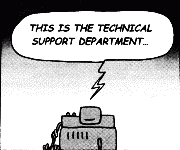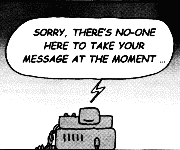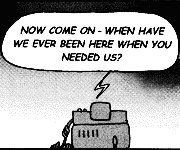|
How often have you heard the expression "excellent service is your best salesman"? Would this also mean the better your service the better your sales? And what defines service?
Service starts by offering your clients value for money. No-one will any longer pay premium prices for a product as there is always going to be someone who can do it better for cheaper. It does not take long to do a bit of market research to ascertain the price of an imported product, and then calculate profit margins. If found to be excessive they will "vote with their feet" and shop elsewhere. In a volatile economic climate it is imperative to keep a watch on foreign exchange rates, ensuring this is used to the best advantage. And then do the most non-British thing of all, pass these savings on to the clients! There is no better pre-sales service than this. With the price now attracting prospective clients the next level of service needs to kick in, technical pre-sales service. There is only one way this can be achieved - know the product - backwards! But is this not the function of a service department? The only problem with many businesses is the last division that is brought about is a service department. Ok, so luck was on your side and no pre-sales service was needed. The product "sold itself" and the sale has been made. The goal has been reached; the product is out there. But all products have some failures and it's not long before the more traditional "after sales service" problem kicks in, and the requirement of a "service department" now arises. As can be noticed in both the previous stages it almost becomes apparent that creating a service department after starting to sell the product is equal to putting the cart before the horse. So back to the question "what is service?". What does it entail, and how is it accomplished?
Once secured there is now the need for continual technical back-up and again answering questions. There will be times when the same question will need to be answered more than once so having answers to hand will prove to be time saving. Part of this continual backup will extend into research for better peripherals to use with the product e.g. finding better antennas to use with a radio telemetry system, better clamps for a power quality recorder, etc. This data is then both added into the planning aids and kept at ones fingertips. It's no use selling a Ferrari without the latest high-speed tyres fitted. There is an easier way of answering questions more than once by making them available electronically. This makes it available to the client 24 hours a day without the cost of employing staff to offer this service, as it is it's something most companies cannot afford. Although time is spent setting up such help, the time saved is even greater as once a question is answered it need never be answered again. Customers merely need to turn to the web site. It also saves their pride as they need not divulge their technical weaknesses. Yes, service is an evolutionary process. As more questions are asked, more answers are sought and more experience of the product gained. The result is questions are more easily answered and less time spent on service.
The Bottom Line: Adopting these policies to one product range increased the sales in a single year by 56% and contributed over 40% to the gross margin. The number of products sold rose 59%, and orders placed on the supplier up 50%. There are apparently few British companies offering service and begs the question, is offering service a very British thing to do? Marc Dekenah. The clips were from "This LIfe", authored by Rick Brookes, © 05.06.01 |

 Service encompasses a range of issues and to limit it in any way will lead to clients perceiving "bad service". Many salesmen contribute to this perception by offering nothing more to a client than the path needed to have him part with his money. As soon as a problem arises this type of salesman abandons his client who now has the arduous task of building a relationship with a person within the company who, one, is prepared to offer the required service (as perceived by the client), and two, will sort the problem out.
Service encompasses a range of issues and to limit it in any way will lead to clients perceiving "bad service". Many salesmen contribute to this perception by offering nothing more to a client than the path needed to have him part with his money. As soon as a problem arises this type of salesman abandons his client who now has the arduous task of building a relationship with a person within the company who, one, is prepared to offer the required service (as perceived by the client), and two, will sort the problem out. If one had to categorise service in one statement it would be "answering questions". "How do I use your product?", "What advantage does using your product give me?", etc. are the typical questions during the pre-sales phase. However, there is one question that seems to fall on deaf ears being "How do I plan your product into my design?". Offering planning aids and design tools is almost paramount with modern products. No engineer, unless he makes it his whole days' work, can keep up with the advances with the flood of products making it onto the shelves. Helping the client through his learning curve, or at least reducing it, will go a long way to securing orders.
If one had to categorise service in one statement it would be "answering questions". "How do I use your product?", "What advantage does using your product give me?", etc. are the typical questions during the pre-sales phase. However, there is one question that seems to fall on deaf ears being "How do I plan your product into my design?". Offering planning aids and design tools is almost paramount with modern products. No engineer, unless he makes it his whole days' work, can keep up with the advances with the flood of products making it onto the shelves. Helping the client through his learning curve, or at least reducing it, will go a long way to securing orders. These are not not theoretical methods. These practices were adopted to a product range that had no service department to speak of. Sales of the product were dwindling and both supplier and customers becoming disillusioned, not with the product, but with the company's ability to market and support the product. A service department was created. It catered for all three aspects of service, pre-sales, sales, and after sales. Not only was this available telephonically but also electronically via a web site which detailed all aspects mentioned.
These are not not theoretical methods. These practices were adopted to a product range that had no service department to speak of. Sales of the product were dwindling and both supplier and customers becoming disillusioned, not with the product, but with the company's ability to market and support the product. A service department was created. It catered for all three aspects of service, pre-sales, sales, and after sales. Not only was this available telephonically but also electronically via a web site which detailed all aspects mentioned.